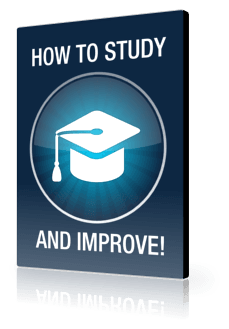Today’s question comes from King. He says: “Hello. I really liked your “Ask SplitSuit a Question” videos and got really interested in working off the tables. I liked your example with hand reading and writing down ranges, but could you give more examples of things we can study? Thanks!”
So, King, before we get started, good for you for taking the off-table stuff seriously, because this is the only way you’re going to become a top-level player, is by studying and taking that off-table time as seriously as possible, so good for you.
As far as other things that we can be studying, I’m going to give you the one big thing that I think most people could do, wouldn’t take too long and would start seeing results much, much quicker if they started implementing this into their off-table study.
Assuming that you already have the fundamentals down, you already know the poker math, you’re getting good with your hand reading, you have those fundamental poker concepts down, the next big thing you want to start doing is expanding your brain. Your poker brain is a muscle and it needs to be exercised and this training or thing you could do off the table is going to be huge for that.
Know your pot odds? Check out the short video, then take the pot odds quiz!
What you do is you go through a hand history; it could be your own hand history, hand you saw on a forum, doesn’t really matter. What you’re going to do, is at every single inflection point, which means every point where you have an action, something you could do, I want you to sit there and say, “Okay, when would I do an aggressive thing and when would I do a passive thing?” Don’t look at a hand review of the nuts, because that’s really easy, you’re always going to take the aggressive line or at least most of the time you’re going to take the aggressive line. We don’t catch the nuts very often, so it’s not as important to study that.
Learn how to play things like top pair, two pair on not-so-great boards, flush draws, and those kinds of things. What I want you to do is at every single inflection point—so pre-flop, you face a raise to your action, okay, when would you take an aggressive line and why? When would you take the passive line and why? Really, really hammer out the “why” part of it. Why would you do that, why would that be good? What assumptions would need to be true?
What you’re really trying to do here is one, expand your brain to think more creatively. It also forces you to think about different lines and say, “Oh, well, maybe this other line would be better, and I hadn’t really even considered it before because it didn’t fit into my default kind of thing to do.”
The other thing that it does is it forces you to really understand the underlying poker logic in everything that you do on the tables, understanding when it would be better to do X or Y thing, when it would be better to do Z thing, and always understanding the “whys.” Once you really have a firm, firm grasp on the “why,” poker becomes way, way, way more fun.
Honestly, if you just did a single hand history, it would probably take 10 to 15 minutes, depends on how many inflection points there are, but if you got in the habit of doing 1, 2, maybe 3 hand histories like this per day, after a month, your poker thought process would be so much better.
This isn’t necessarily going to be easy because you’re forcing your brain to expand. You’re forcing your brain to look at spots that maybe you’ve never even considered before, never seen before, but chances are you’re going to see it at some point in your poker career or you’re going to see a spot that’s similar to it.
The more times you rep it off the table, the more you study hand histories, and the more you study hand histories really, really in depth and really, really creatively, in my opinion, is going to be super, super helpful in the long run.
As your brain expands, add a creative framework: Creative Poker Lines!
You’re going to get stuck sometimes. You’re going to be like, “Okay, I can’t really figure out the underlying reason here, I’m getting kind of confused, I don’t know when I should do this, I don’t know what the heck I should do with this exact hand,” or “I don’t know what I should do against this exact kind of player.” When you get stuck, you want to ask someone. You want to ask someone that you respect, so if you have a poker buddy or a poker circle, definitely pitch it there.
If you don’t really have that yet, you might want to consider a poker forum. We have a great poker forum over at RedChipPoker.com, so you might want to consider that. If you’ve never really done forums or are looking for a more friendly forum—maybe you’ve done the forum thing in the past and gotten burned on it—we have a really friendly forum where you’re not going to get hammered on, so that’s definitely something to consider.
You want to start asking other people, bouncing your ideas, saying, “Okay, this is where I’m at so far, this is where I am in the hand. This is my thought process, what does it look like?” Start that conversation, start that dialogue. Once you get that and get other people’s opinions and thoughts on it, again, it’ll just help you expand your poker brain that much further. Not everyone is going to be right, but at least it’s going to give you some places to start, some things to consider and that’s all you want to do.
That’s what your off-table time is for, is to expand your poker brain, make sure your poker logic is getting as strong as possible and then go on from there. Again, just studying like this nonstop is going to make you a much, much better thinker and a much, much tougher opponent.
If you want to improve your game as quickly as possible, my video “How To Study Poker & Improve” will be the best bet you’ve made all day.

